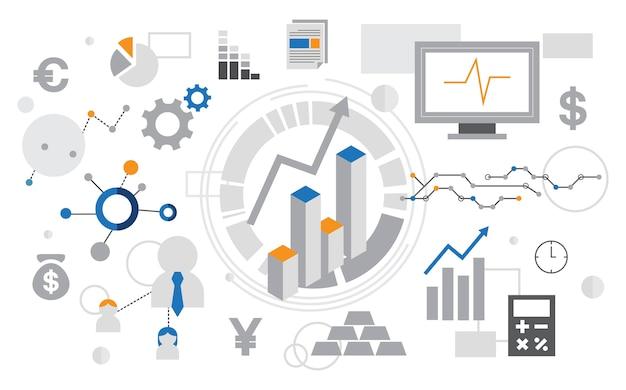In the realm of global economies and intricate financial systems, Economist careers stand as beacons of insightful analysis and strategic decision-making. Economists play a pivotal role in deciphering complex economic trends, guiding policy formulation, and contributing to the growth and stability of nations and industries. In this blog, we will embark on a journey into the world of Economist careers, uncovering the key responsibilities, skills, and opportunities that await those who choose this intellectually stimulating path.

Understanding Economist Careers
Economist Careers - Navigating the Economic Landscape
Economists are analytical experts who study how societies allocate resources and make choices. They delve into a multitude of economic variables, ranging from supply and demand dynamics to market trends and government policies. Economist careers involve conducting research, analyzing data, and providing insights that guide crucial decisions across diverse sectors.
Key Responsibilities in Economist Careers
Driving Economic Insights
The responsibilities of economists extend across various dimensions of economic analysis. Some key roles include:
Policy Formulation: They contribute to the development of economic policies, offering recommendations that can influence economic growth, inflation rates, and employment levels.
Skills and Education Needed for an Economist Career
To succeed in a career in economics, you will need to have a strong foundation in the following skills:
In addition to these skills, you will also need to have a bachelor's degree in economics or a related field. Some employers may also require candidates to have a master's degree or a Ph.D. in economics.
Job Outlook for Economists
The job outlook for economists is good. The Bureau of Labor Statistics projects that the employment of economists will grow 7% from 2020 to 2030, about as fast as the average for all occupations. This growth is expected to be driven by the increasing demand for economists in a variety of industries, including business, government, and academia.

Career Opportunities in Economist Careers
Economic consultant: Economic consultants work with businesses and governments to provide advice on economic matters. They may be involved in a variety of projects, such as analyzing market trends, developing economic models, or conducting cost-benefit analyses.
Data analyst: Data analysts use their knowledge of economics to analyze data and make predictions about future trends. They may work in a variety of settings, such as businesses, governments, and think tanks.
Teacher: Economists can also teach economics at the college or university level. They may teach courses on a variety of topics, such as microeconomics, macroeconomics, and econometrics.
Conclusion
In conclusion, Economist careers offer an intellectually stimulating journey through the intricate world of economics. With their analytical prowess, economists wield the power to influence economic decisions that shape nations and industries.
If you're intrigued by the prospect of an Economist career or any other path, take the first step toward realizing your true potential with ProEdge Careers' Industry Readiness Test. Our algorithm-based assessment measures your abilities across 30+ parameters, matching you with the best-suited jobs and internships. Visit ProEdge Careers to learn more or reach out to us at info@proedge.co